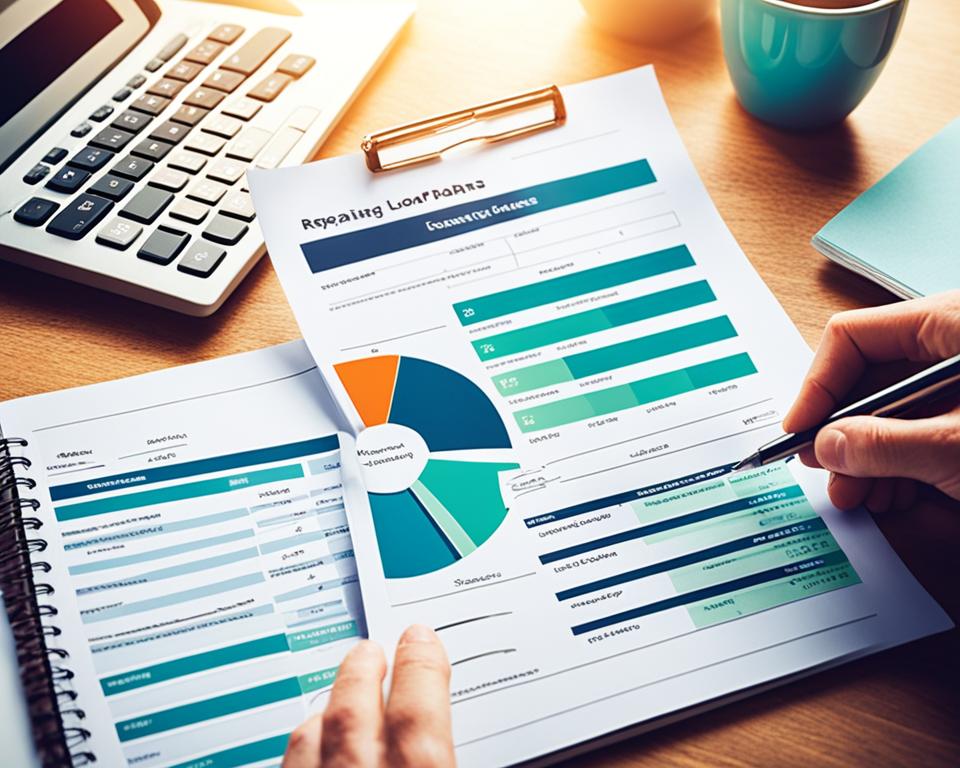Understanding the Importance of Financial Planning
Financial planning is an essential aspect of managing your personal or business finances.
It involves creating a roadmap that outlines your financial goals and helps you make informed decisions about spending, saving, and investing. Without a solid financial plan in place, you may find yourself facing financial uncertainties, missing out on opportunities for growth, or struggling to achieve your desired lifestyle.
One key aspect of financial planning is the ability to anticipate and prepare for future expenses and financial responsibilities. By taking the time to understand your financial situation and set clear goals, you can develop strategies to mitigate risks, make wise financial choices, and ensure that you have the necessary funds to meet your commitments. This level of foresight not only safeguards your financial well-being but also empowers you to make proactive decisions that can positively impact your long-term financial security.
Setting Clear Financial Goals for Effective Budgeting
Setting clear financial goals is a crucial step in effective budgeting. It provides a blueprint for managing your money and achieving financial stability. Without well-defined goals, it can be challenging to stay motivated and focused on sticking to your budget.
To start, take some time to reflect on your short-term and long-term financial aspirations. Maybe you want to save for a down payment on a house, pay off your student loans, or build an emergency fund. Regardless of what your goals are, make sure they are specific, measurable, achievable, relevant, and time-bound (SMART). This will allow you to track your progress, stay accountable, and adjust your budget accordingly. Remember, setting clear financial goals not only helps you stay disciplined in your spending but also provides a sense of purpose and direction for your overall financial well-being.
Identifying and Tracking Income and Expenses
To effectively manage your finances, it is crucial to identify and track your income and expenses. This process allows you to gain a clear understanding of where your money is coming from and where it is going. By keeping a record of your income sources, such as salaries, investments, and side hustles, you can determine your total monthly or annual earnings. Tracking expenses, on the other hand, involves recording every payment you make, whether it is for rent, groceries, utilities, or entertainment. This detailed documentation gives you a comprehensive view of your spending habits and helps in making informed budgeting decisions.
Identifying and tracking income and expenses provides several benefits. Not only does it enable you to have a complete picture of your financial situation, but it also enables you to identify areas where you can potentially cut back or reallocate funds. Additionally, tracking your expenses allows you to identify any unnecessary or impulsive spending patterns. By monitoring your income and expenses consistently, you can gain valuable insights into your financial habits and make adjustments as needed to align with your financial goals. Overall, this proactive approach to managing your finances empowers you to make informed decisions and take control of your financial well-being.
Analyzing Past Spending Patterns to Inform Future Budgeting
When it comes to budgeting effectively, one important step is to analyze past spending patterns. By examining your previous expenses, you can gain valuable insights into your financial habits and identify areas where you may have overspent or underspent. This analysis helps you make informed decisions for future budgeting and allocate your funds more wisely.
To start analyzing your spending patterns, gather your bank statements, credit card statements, and receipts from the past few months. Categorize your expenses into different groups such as housing, transportation, groceries, entertainment, and so on. By doing this, you can clearly see where the majority of your money is going. Look for any patterns or trends in your spending, such as regular monthly subscriptions or impulse purchases. By identifying these patterns, you can better understand your spending behaviors and make adjustments to your budget accordingly.
Prioritizing Expenses and Allocating Funds Accordingly
One key aspect of effective budgeting is prioritizing expenses and allocating funds accordingly. This means that you need to identify which expenses are essential and should be prioritized over others. Start by listing all your monthly expenses and categorize them into needs and wants. Needs typically include items like rent or mortgage payments, utilities, groceries, and transportation costs. Wants, on the other hand, are non-essential expenses like eating out, entertainment, or shopping.
Once you have categorized your expenses, you can then allocate your funds based on their priority. It is crucial to ensure that your needs are covered first before allocating any funds towards your wants. By doing so, you can ensure that you meet your basic needs while still having the flexibility to indulge in some of the things you enjoy. Allocating funds accordingly can help you avoid overspending on unnecessary items and maintain a balanced financial plan.
Incorporating Savings and Emergency Funds into Your Budget
When it comes to budgeting, incorporating savings and emergency funds is a crucial step to ensure financial stability and preparedness. Setting aside a portion of your income for savings can provide a safety net for unexpected expenses or future goals. By prioritizing savings within your budget, you can build up a financial cushion that offers peace of mind and safeguards against potential financial hardships.
To incorporate savings into your budget, start by determining a specific percentage or amount that you can comfortably set aside each month. It is recommended to aim for saving at least 10% of your income, but even a smaller percentage is a good start. Treat savings like any other essential expense, allocating it before anything else in your budget. By automating regular transfers to a separate savings account, you can make the saving process effortless and ensure consistent progress towards building your emergency fund. Remember that consistency is key, and even small contributions over time can accumulate into a substantial amount that can cover unexpected expenses or help you achieve your long-term financial goals.
Strategies for Reducing Unnecessary Expenses
To achieve effective budgeting, it is crucial to identify and reduce unnecessary expenses. One strategy is to review your monthly spending habits and identify areas where you can cut back. Consider cancelling unused subscriptions or memberships that you no longer find value in. Additionally, evaluate your spending on entertainment, dining out, and impulse purchases. By cutting back on these discretionary expenses, you can free up more money in your budget for other financial goals and priorities.
Another effective strategy is to shop smart and compare prices before making purchases. Take advantage of sales, discounts, and coupons when buying necessities. Consider buying generic or store-brand products instead of expensive name brands. Additionally, try to avoid impulse buying by creating a shopping list and sticking to it. By adopting these strategies, you can reduce unnecessary expenses and have more control over your budget. Remember, every dollar saved is an important step towards achieving your financial goals.
Monitoring and Adjusting Your Budget as Circumstances Change
As circumstances change, it is crucial to regularly monitor and adjust your budget to ensure it remains effective and aligned with your financial goals. By regularly tracking your income and expenses, you can identify any shifts or discrepancies that may require adjustments. This can be done by keeping detailed records of your financial transactions and by utilizing budgeting apps or software to simplify the process. By consistently reviewing your budget, you can proactively identify areas where expenditures are exceeding expectations or income is falling short, allowing you to make necessary adjustments promptly.
Furthermore, as life events occur, such as getting a new job or purchasing a home, it is essential to reevaluate and adjust your budget accordingly. These changes may result in fluctuations in your income or expenses, requiring you to reallocate funds and readjust your priorities. By staying proactive and flexible, you can effectively adapt your budget to accommodate these changes and ensure continued financial stability. By regularly monitoring and adjusting your budget as circumstances change, you can ensure that it remains a dynamic tool that supports your financial well-being.
Seeking Professional Advice and Resources for Budgeting Success
When it comes to achieving success with budgeting, seeking professional advice and resources can be a game-changer. There are various experts and services available that specialize in personal finance and can offer valuable insights and guidance. These professionals have the knowledge and experience to help you create a comprehensive budgeting plan that aligns with your financial goals and circumstances.
A financial advisor or planner can assist you in analyzing your income and expenses, identifying areas for improvement, and developing a realistic budget. They can provide personalized advice on how to prioritize expenses, allocate funds effectively, and incorporate savings and emergency funds into your budget. Additionally, they can offer strategies for reducing unnecessary expenses and provide ongoing support in monitoring and adjusting your budget over time. With their expertise, you can gain a better understanding of your financial situation and make informed decisions that contribute to your long-term financial well-being.
Tips for Staying Motivated and Consistent with Your Budgeting Efforts
Staying motivated and consistent with your budgeting efforts can be a challenge, but it is crucial for long-term financial success. One tip is to regularly review your financial goals and remind yourself of the reasons why you are budgeting in the first place. Whether you are saving for a down payment on a house or working towards financial independence, keeping your goals at the forefront of your mind can help you stay motivated and focused. Another helpful strategy is to track your progress along the way. Seeing how your savings grow and your debt diminishes can be incredibly motivating, as it serves as a tangible reminder of the progress you are making towards your goals. Additionally, celebrating small victories along the way can help to maintain your motivation and keep you on track.



